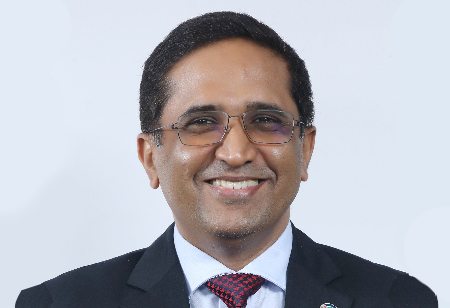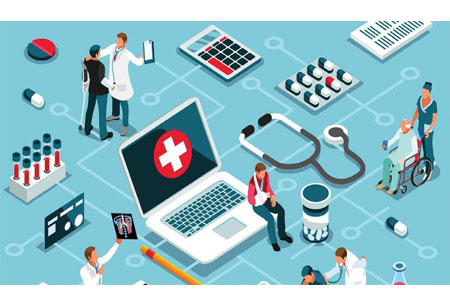
Technology Integrated Patient Treatment - Faster & Precise Healthcare


T. Sayandhan, CEO, Sunshine Medical Devices of Sunshine Holdings PLC, 0
Tell us your experience in the healthcare industry extending over 30+ years. What are the major changes you have come across for the betterment of the industry?
The first ten years had been with GlaxoSmithKline, and that particularly had been in the anti-infective segment. After the merger of SmithKline Beecham with GlaxoSmithKline, the new entity had both penicillin and cephalosporins antibiotics in the Glaxo portfolio. The marketing of the medicines had been very competitive. We achieved excellent success in growing business brands for medicines such as Augmentin becoming a leading brand. I’m proud that during my time as a Category Manager of GSK, Augmentin became not only the number one antibiotic in Sri Lanka, but also the number one pharmaceutical product in the country. While my first 10 years was in handling medicines, in the next 10 years, I worked as the Country Manager for two-key principles, Allergan and Abbott Medical Optics. These focused on business in ophthalmology. Under my leadership, the market share increased from about 11 percent to 51 percent in Sri Lanka in the Ophthalmology subsegment. Bringing new evolution medication in treating people with glaucoma, and dry eyes, NSAID’s were introduced during this period together with Aspheric and Multi focal Intra Ocular lenses being launched for the first time in Sri Lanka. My third 10 years, I have worked for Delmege, and now I’m contributing to the growth of Sunshine Healthcare, which has been purely into medical devices. Manufacturers we represent from Sunshine Medical devices are Johnson & Johnson, 3M, Siemens Healthineers, and GE Healthcare among others. Key changes include technological innovation and invention, especially in medical devices, providing better medical solutions for underprivileged patients.
How do you recognize the pharmaceutical requisites even before a pandemic like COVID-19? How do you collect data for patients to record time?
Within the healthcare industry, big data is increasingly becoming key. Modern technological tools like AI (Artificial Intelligence) and predictive analysis are helping the process to get faster results in healthcare industry innovations. Developing a vaccine takes a long time; for that matter, pharmaceutical products or medical devices take a longer innovation/invention cycle. When COVID
-19 hit us in early February 2020, we witnessed the rise of research and development for the coronavirus vaccines. Due to the development of AI, researchers were able to successfully come out with vaccines in the fastest possible time.
What are the latest medical devices creating a buzz in the medical field, and how do you see the development in those areas?
One of the new areas in the field medical device is automation, for example, in the lab segments in IVD, are ‘Biochemistry,’‘Immuno chemistry’ and ‘Hematology.’ We see a lot of automation being used bringing accuracy and faster results with less human intervention. Same trend can be seen in Imaging in CT, MRI scans etc.
Doctors state that automation is helping in the next-generation sequencing of DNA, referring it as ‘Genomics,’ analysing a person’s DNA providing patient-precise medicine. It is becoming popular in oncology and infectious diseases. According to their genetics, patients get treated by the doctors with personalized and customized medicines.

What steps are adopted to avail affordable medical assistance to patients without heavy financial support, and how has patient treatment become equal within the segmented community?
I would say every Sri Lankan is blessed since education and healthcare are completely free, irrespective of economic status or age. Additionally, the state incurs healthcare costs for its patients. But from a private sector point of view, especially in this region, I mean including India, Bangladesh, and Pakistan, most patients can fall into the middle-income category. Thus, we must bring quality medication and devices at affordable price.
Please end with affirmative thoughts about the progress of the medical devices industry.
I see a lot of invention and innovation using AI, with many technological advancements coming into play in precision medicine, especially in complexed areas such as oncology and infectious diseases. Computer-assisted surgeries will take surgeries performed currently to the next level.
What are the latest medical devices creating a buzz in the medical field, and how do you see the development in those areas?
One of the new areas in the field medical device is automation, for example, in the lab segments in IVD, are ‘Biochemistry,’‘Immuno chemistry’ and ‘Hematology.’ We see a lot of automation being used bringing accuracy and faster results with less human intervention. Same trend can be seen in Imaging in CT, MRI scans etc.
I personally see a lot of invention and innovation in the future with the use of artificial intelligence and technological advancement in the healthcare industry
Doctors state that automation is helping in the next-generation sequencing of DNA, referring it as ‘Genomics,’ analysing a person’s DNA providing patient-precise medicine. It is becoming popular in oncology and infectious diseases. According to their genetics, patients get treated by the doctors with personalized and customized medicines.

What steps are adopted to avail affordable medical assistance to patients without heavy financial support, and how has patient treatment become equal within the segmented community?
I would say every Sri Lankan is blessed since education and healthcare are completely free, irrespective of economic status or age. Additionally, the state incurs healthcare costs for its patients. But from a private sector point of view, especially in this region, I mean including India, Bangladesh, and Pakistan, most patients can fall into the middle-income category. Thus, we must bring quality medication and devices at affordable price.
Please end with affirmative thoughts about the progress of the medical devices industry.
I see a lot of invention and innovation using AI, with many technological advancements coming into play in precision medicine, especially in complexed areas such as oncology and infectious diseases. Computer-assisted surgeries will take surgeries performed currently to the next level.